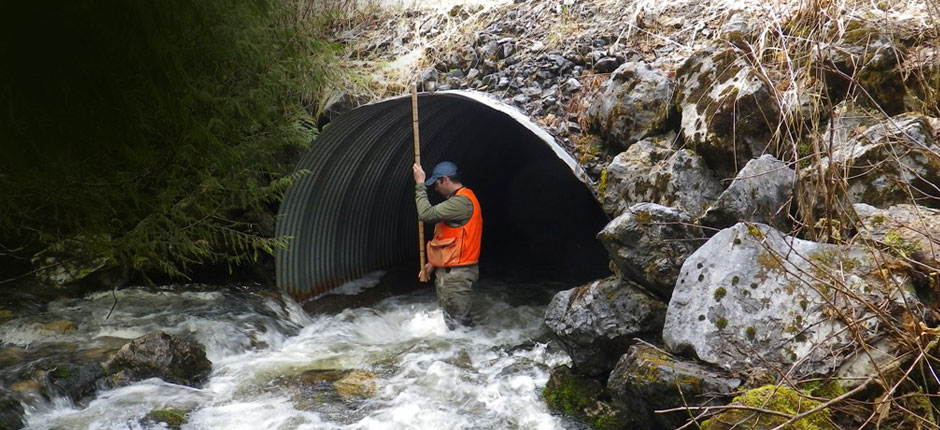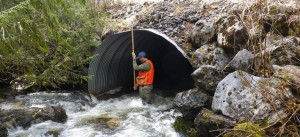Two river restoration oriented courses taking place in Juneau this spring – check out the registration and course details below.
Using beaver to restore streams is rapidly gaining acceptance as a cost-effective technique to improve aquatic habitat, especially for salmonids. Regulatory and institutional obstacles are being reduced or removed as scientific advances continue to demonstrate that beaver can restore stream habitat far more effectively, and at a much lower cost, than many traditional stream restoration approaches.
Join us for an intensive 1-day workshop symposium for the beta release of a state-of-the-science manual regarding the use of beaver to restore streams. Work shops are taking place across the western US and they will be interactive with the audience as we walk through the manual describing its use to facilitate the restoration of streams. We will provide assessment tools for determining how, where, and when to use beaver in stream restoration. Also included will be a discussion of the regulatory process and how to maximize the probability of successfully obtaining permits.
These workshops will be offered for a nominal fee through a partnership with US Fish and Wildlife Service, NOAA Fisheries, and Portland State University, Environmental Professional Program.
EPP233 RiverRAT: River Restoration and Analysis Tools
Course Description
The Pacific Northwest continues to be an international leader in the field of stream restoration, and as such, regulatory reviewers are often faced with novel project types that are not yet supported by industry standards. While appropriate and necessary given the state of our river systems, this does pose unique challenges when reviewers are faced with evaluating a stream restoration project.
To address this challenge, NOAA Fisheries and USFWS collaboratively commissioned research in 2008-09 to develop a Science Document and accompanying tools to support more consistent and comprehensive reviews of stream management and restoration proposals. The Science Documentsynthesizes the body of knowledge in fluvial geomorphology and river management, and presents it in a way that is accessible to a broad scientific and management audience. Accompanying theScience Document are three tools: (1) a Screening Matrix that relatively ranks risks due to project and stream response potential; (2) a Project Information Checklist to assist in evaluating whether a proposal includes all the information necessary to allow critical and thorough project evaluation; and (3) a project evaluation tool named RiverRAT that guides reviewers through the steps necessary to critically evaluate the quality of the information submitted, the goals and objectives of the project, project planning and development, project design, geomorphic-habitat-species relevance, and risks to listed species. The tools and supporting Science Document are publically available at www.restorationreview.com, and are now being commonly used for review by various state and federal agencies.
This course will provide an overview of the physical science underpinning river restoration, use of the Screening Matrix, overview of the Project Information Checklist, and in class use of RiverRATutilizing a real restoration project. This course is intended for anyone involved in the planning, design, implementation, monitoring, funding, and/or review of stream restoration or management actions.


